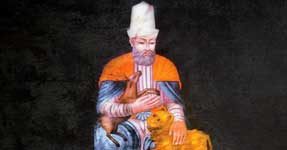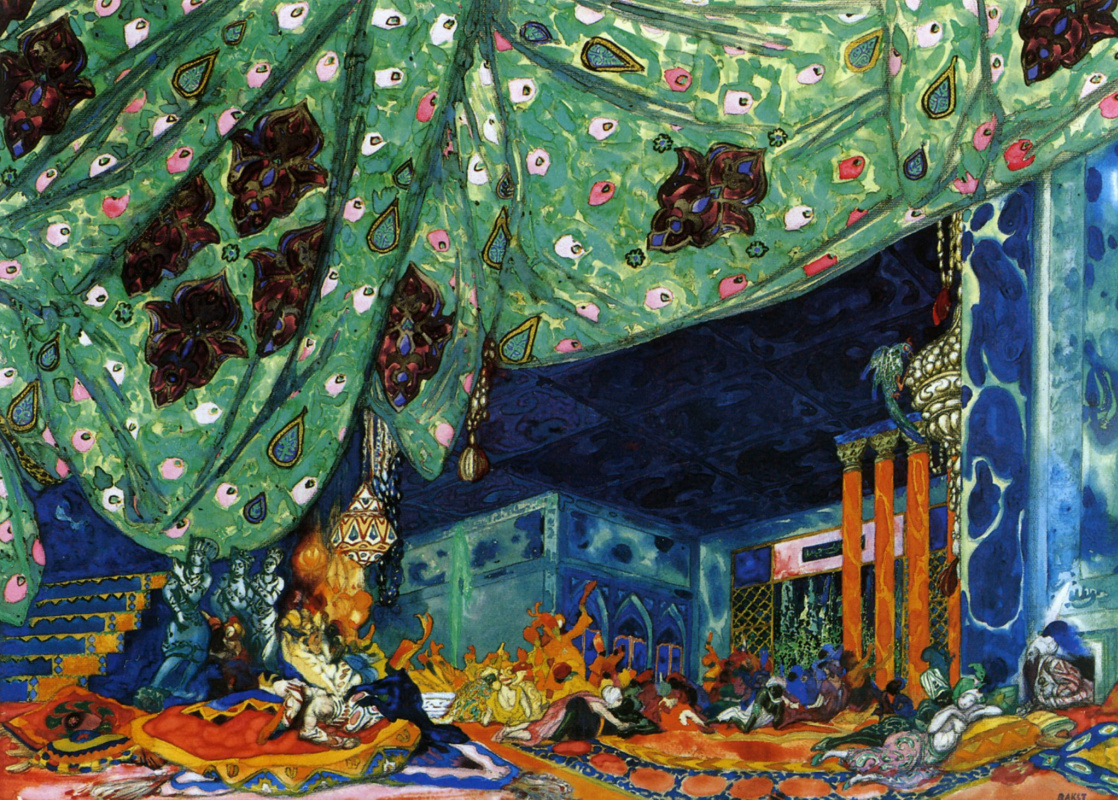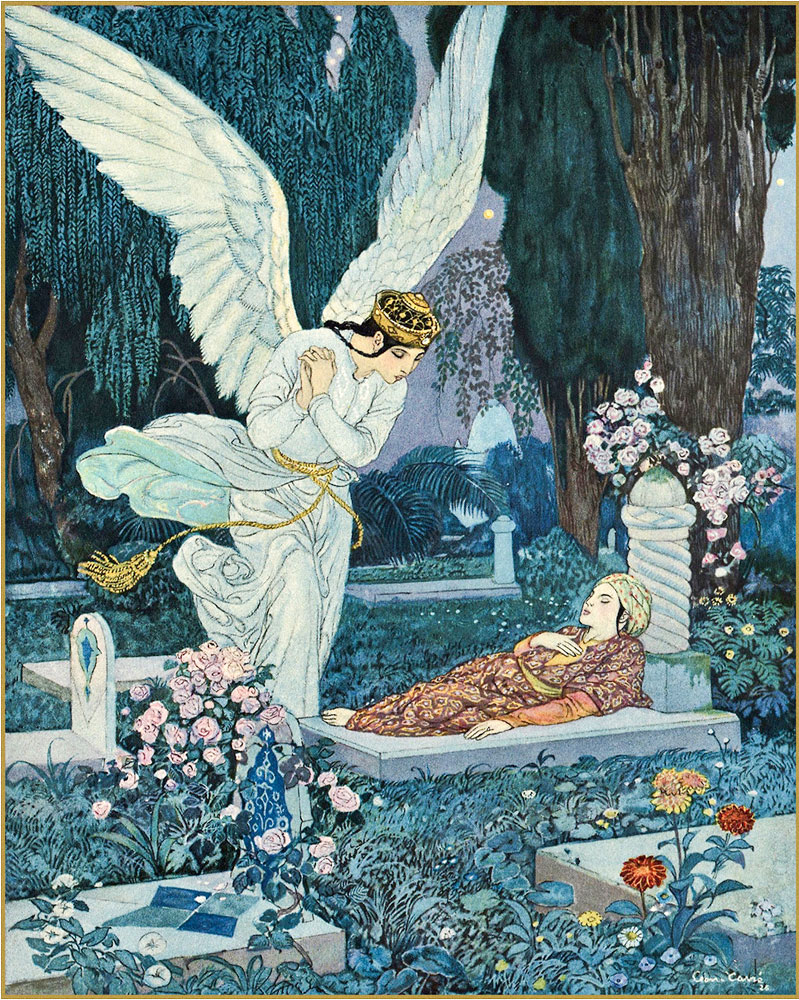At this time, when even a Muslim name may cause you problems, it would not be the best choice for Scheherazade to travel to the airports of the West… On the other hand, if one can be saved, this is Scheherazade… Perhaps she can put the things on their proper basis…
For everything wrong it’s her fault.
Because she decided to travel in the West and succeeded there where all the Muslim hordes failed, even before the Crusades.
Scheherazade left Bagdad to go to Paris with the Frenchman Antoine Galland at the end of the 17th century. At the beginning of the 18th century, the “Orientalist from Persia” gained the right to speak French. A wise lady, gentle, both in her fairy tales and stories, she quickly conquered the world of Europe with her words. She learned to speak English, Russian, German, Italian. Awake and agile, she wrote novels and poetry, made paintings, taught children, composed operas, designed scenes.
The Orientalist Scheherazade is erudite, talented and fully dressed. She knows the Koran, the fiqh (jurisprudence), and other religious texts, along with philosophy, literature, medicine, history, and “the words of the wise men and kings”. She is specialised in psychology, and familiar with the world. Scheherazade overcomes the divisions between the religious and the secular, in a way that the East and the West of the modern world are desperately trying to succeed.
She was a smart woman who used her head to save her body, while unfortunately many women before and later used their bodies to lose their heads. She taught the king the power of speech and forced him to stop the carnage. Not only that, Shahrayar officially admitted that the man must use the logic instead of the troops in order to shape the facts. Her stories are a symbol of the logic against the violence, and they add another dimension to the stories of the modern myth about the culture and the coexistence.
With her passage to the West though, she lost her intelligence and her right to talk about her world… She begins to narrate whatever the West says to her, or rather, whatever the male-dominated West narrates about herself. Words did not necessarily have the same meaning in the two worlds. Her new audience put her in fantastic scenes and turned the power and beauty of her words into a nice appearance and body language. The new Scheherazade became well known, but she was not recognised anymore by her fairy tales. A profound cultural diversification had happened.
She was found unprepared between two worlds – East and West. Two Scheherazades, two cultures, two dialogues. The difference of the expression of the East and the West is recognised in the fairy tales. Different ideas, practices, fantasies and preferences. Two huge magnifying glasses. Surroundings and geographic parameters unrobed and muzzled Scheherazade.
Western artists, musicians, directors, screenwriters, painters did what the King of Scheherazade did not dare to do. They seduced silently the inventive narrator. Unfortunately, the great ladies of Europe’s royal courtyards did not protect her, as they were more interested in the Baghdad’s muslins and less on the women’s rights issues.
Scheherazade had to wait almost 150 years, until Edgar Alan Poe gave her the titles “teacher of the imagination” and “princess of politics” in his book One thousand and two nights. She had to cross the Atlantic ocean to meet the man who recognised on her a brilliant intelligence, and who did not hesitate to kill her at the end of her thousandth second night, in order to rewrite her stories.
Could anyone of us ever imagine such a crime?
By reading western literary and philosophical works, observing the western art, watching opera and ballet, conversing with western men, Mernissi describes the different outline of the harem in the West and the East. “My harem,” she says, “as a historical reality, is associated with artistic images created by famous painters and talented filmmakers of the Hollywood, who made women conquered slaves with their belly rarely hidden. In the actual harem, they were fully dressed, while their body contained also a mind. Sexuality was part of the life and not every moment of the life. In what the West imagines as a harem, sensuality and nudity prevail.”
Are we on the same planet? Perhaps the only question can blunt people’s fears that globalisation leads to homogeneity.
Fatema Mernissi
“Le harem et l ‘Occident”
Fatema Mernissi (September 1940 – November 30, 2015) was a Moroccan feminist writer and sociologist.
If Scheherazade would come back, she might have told us her stories differently…










